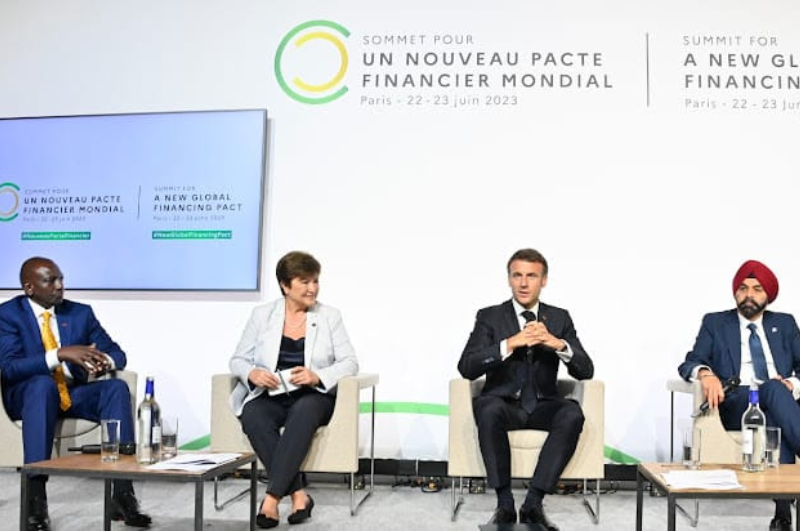

After intense deliberation at the New Global Financing Pact summit in Paris that closed yesterday, the narrative emerging from Africa and the Global South paints a story of both hope and frustration.
Spearheaded by French President Emmanuel Macron, the summit aimed to redefine fiscal relationships between high-income nations and countries grappling with the dual burdens of climate change and debilitating debt.
Aiming to recalibrate the global financial system, African leaders and their global south counterparts, notably from Latin America, adopted a more resolute stance against the propositions advanced by Western governments. The negotiations were punctuated by an array of robust panel debates and discussions, with certain sessions being viewed skeptically as platforms for rehearsed announcements.
High-profile African attendees, including Niger’s President Mohamed Bazoum, passionately articulated Africa's desire to stimulate growth through the exploitation of their fossil fuel resources. He called for a capital increase for the World Bank, challenging the current skewed distribution of shareholder power in multilateral development banks.
Kenya's President William Ruto emphasized the unequal and nationally focused power distribution within these banks, relegating the global common good to an afterthought. “Africa does not want anything for free. But we need a new financial model where power is not in the hands of the few,” he emphasized, calling for a thorough review of the global financial system to guarantee equity in resource access.
South Africa's President Cyril Ramaphosa echoed this sentiment during the summit’s closing ceremony. “It’s important in the new era where the world is in now, that there should be a good measure of equality among sovereign nations ... We should go to demonstrate that Africa should never be seen as a continent that needs generosity. We want to be treated as equals.” Brazil’s President Luiz Inácio Lula da Silva also expressed solidarity with his global south colleagues, critiquing the fragile global governance which hindered the enforcement of the Paris Climate Agreement commitments.
Moreover, Ghana's President Nana Akufo-Addo proposed a joint working committee to address illicit financial flows from the continent, stressing the importance of fulfilling past promises. This sentiment was underscored by Egypt's President Abdel Fattah el-Sisi, who pointed out the unfulfilled pledge of $100 billion annually by high-income countries to aid states in combatting climate change.
The announcement that the $100 billion climate finance commitment was likely to be reached in 2023 was met with skepticism. When challenged by President Ramaphosa, President Macron revealed that while the full amount had been pledged, only $60 billion had reached the IMF for use in low-income countries.
Despite the tension, the summit did yield some positive outcomes for Africa: the suspension of debt repayments for loans from the World Bank, a Just Energy Transition Partnership for Senegal, a Health Impact Investment Platform with three multilateral development banks and the World Health Organization, and a $6.3 billion debt restructuring deal with Zambia. The International Monetary Fund (IMF) hit its $100 billion Special Drawing Rights target for vulnerable countries, albeit with $40 billion still pending delivery.
Related Articles
Select Payment Method
Pay by bank transfer
If you wish to make a donation by direct bank transfer please contact Fr Paul Hamill SJ treasurer@jesuits.africa. Fr Paul will get in touch with you about the best method of transfer for you and share account details with you. Donations can be one-off gifts or of any frequency; for example, you might wish to become a regular monthly donor of small amounts; that sort of reliable income can allow for very welcome forward planning in the development of the Society’s works in Africa and Madagascar.
Often it is easier to send a donation to an office within your own country and Fr Paul can advise on how that might be done. In some countries this kind of giving can also be recognised for tax relief and the necessary receipts will be issued.

